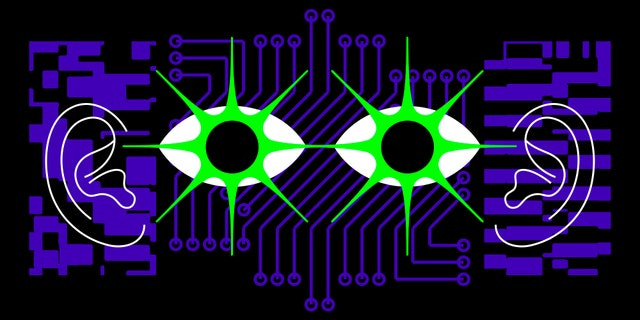Transmission #40: Algorithmic Anxiety, Spotification, Behavioural Economics, a History of Swearing, and Peak-Long Jump
Design, ideas and other flotsam
Hello. Welcome.
This is Transmissions by me, Marty Brown.
What is Transmissions? It’s an ongoing, (usually) fortnightly newsletter that collates some of the more interesting stories, links, quotes and other curios that float my way.
If you’re new here, then sign up now to get more of these in your inbox, and don’t forget to tell your friends!
Design
The Age of Algorithmic Anxiety
Kyle Chayka, The New Yorker
A definition of the ‘algorithmic anxiety’ that is becoming the defining trait of a generation.
Besieged by automated recommendations, we are left to guess exactly how they are influencing us, feeling in some moments misperceived or misled and in other moments clocked with eerie precision. At times, the computer sometimes seems more in control of our choices than we are.
This article talks about the strange ways in which know that our tastes have become part of a feedback loop that we feel vaguely: our behaviour alters ‘the algorithm’, ‘the algorithm’ shapes our worldview, and in turn alters our behaviour. And so it goes.
So how do we escape? One way I think about it is by performing a kind of algorithm bonsai - gently steering a recommendation engine in the direction you want by deliberately stepping outside its boundaries. Whenever my Spotify algorithm starts to feel a little samey, I scour through review sites and blogs to try to guide it in a new fresh direction. It works, mostly.
(But as someone with small children who love listening to my Spotify account, I’m very aware that one only has so much control over these type of things).
The Woes of Being Addicted to Streaming
Jeremy D. Larson, Pitchfork
On a very similar topic, a classic music nerd’s lament:
I feel unsettled when I stream music on Spotify. Maybe you feel that way, too. Even though it has all the music I’ve ever wanted, none of it feels necessarily rewarding, emotional, or personal. I pay a nominal fee for this privilege, knowing that essentially none of it will reach the artists I am listening to. I have unfettered access to an abundance of songs I genuinely love, along with an abundance of great songs I’ve never heard before, but I can’t shake the eerie feeling that the options before me are almost too perfect.
Cue some navel gazing about the ubiquity of the service, and how it pushes people away from a deep appreciation of musical context. All very true of course.
But it also included a really interesting digression into a story about why an obscure B-side (Harness Your Hopes) suddenly became the band Pavement’s ‘Greatest Hit’. It turns out that this fairly benign song has a lot of fairly generic musical characteristics. Moreso than most Pavement songs, which are often really great because they are angular, noisy and weird – decidedly non-generic. But the generic-ness off the song was actually something that the Spotify algorithm loved. And so it appears that it would turn up as an ‘additional song’ on the end of lots of other playlists, and thus saw a huge spike in listens.
Weird. Bad? Good? I don’t know. Pavement frontman Stephen Malkmus sums it up grimly:
“I guess when you win you’re a little bit happy about it,” he shrugs, when asked what it feels like to have a song blow up out of nowhere, without even trying. “I think that’s probably how everyone feels, from a SoundCloud rapper to somebody like me. At this point we take what we can get, even in a debased form. Because what’s left?”
Ideas
We Don’t Have One Hundred Biases, We Have the Wrong Model
Jason Collins, Works in Progress
A useful critique of Behavioural Economics, that pokes at the usefulness of the field:
Suppose you are studying a person deciding on their retirement savings plans. You want to help them make a better decision (assuming you can define it). So which biases could lead them to err? Will they be loss averse? Present biased? Regret averse? Ambiguity averse? Overconfident? Will they neglect the base rate? Are they hungry? From a predictive point of view, you have a range of countervailing biases that you need to disentangle. From a diagnostic point of view, you have an explanation no matter what decision they make. And if you can explain everything, you explain nothing.
…
Behavioral economics today is famous for its increasingly large collection of deviations from rationality, or, as they are often called, ‘biases’. While useful in applied work, it is time to shift our focus from collecting deviations from a model of rationality that we know is not true. Rather, we need to develop new theories of human decision to progress behavioral economics as a science.
Chart of the Week
(ht @kfreegard)
Other
💸 Why is high inflation bad? Because it can change the underlying moral fabric of our society. Link
🪨 New study estimates how long mined metals circulate before being lost. Gold tends to last about 200 years, but it turns out we’re unnecessarily throwing out a lot of platinum, in catalytic converters. Link
🇨🇳 China may never achieve the kind of parity in standard of living with the West that it hopes for, due to an unexpected demographic collapse that leaves not enough young people to support the aged. Link
🤬 A history of swearing: “An early recorded use of the f-word was a piece of marginalia by an anonymous monk writing in 1528 in a manuscript copy of Cicero’s De officiis. The inscription reads: ‘O d fuckin Abbot’.” Link
👟 We seem to have reached peak-long jump. No one has beaten Carl Lewis’s record since 1991. Except for Lewis, who thinks he did one better. Link
🎥 Dall-e for video - the first steps already. Link
Thanks for reading! Please share this if you enjoyed it. See you next fortnight!



